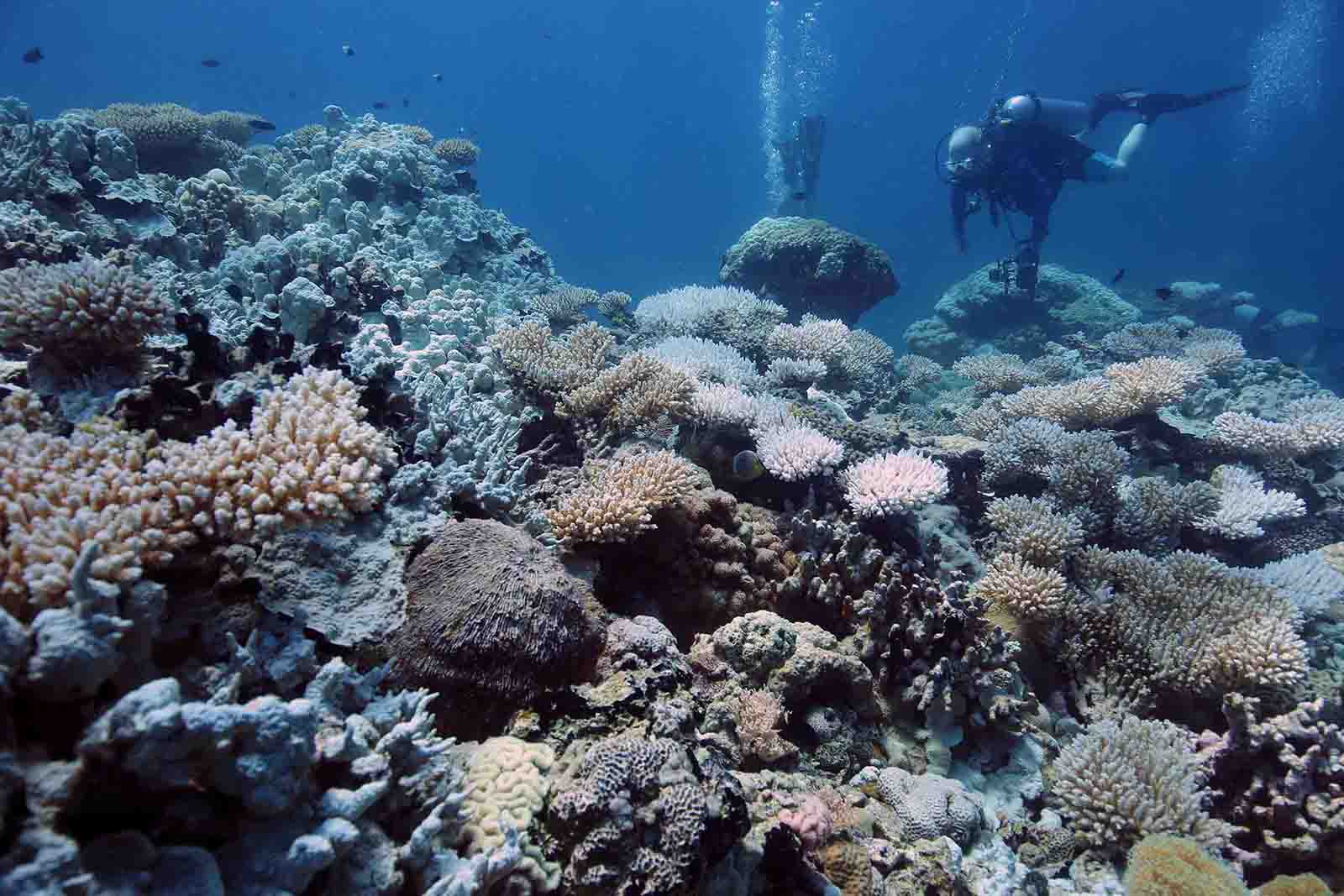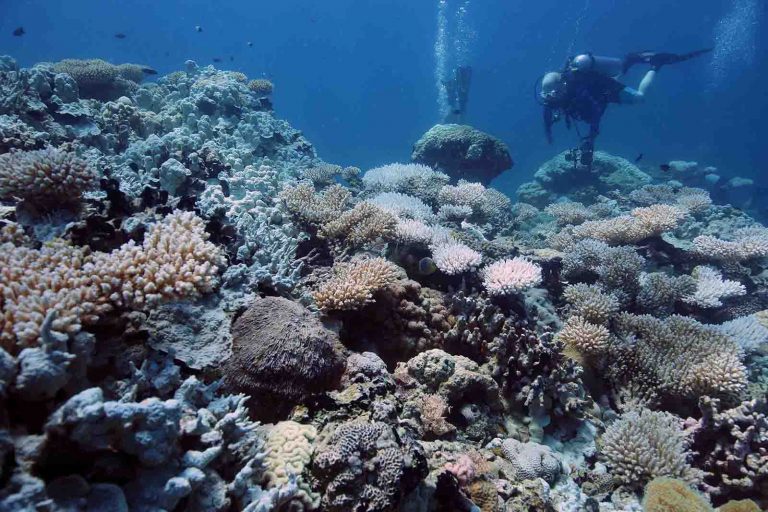Chagos Archipelago in the northern Indian Ocean, a British Overseas Territory and the world’s biggest “no-take” marine reserve, has been hit hard by coral-bleaching, leading marine biologists have revealed.

The researchers say they saw the devastation at first-hand during a Bertarelli Foundation research expedition in April, but the Chagos Conservation Trust (CCT) chose 8 June – World Oceans Day – to release their findings.
“Up to 85% of the corals… are believed to have been affected by the worst bleaching event since 1998,” said Dr Ronan Roche of Bangor University, one of the team. Bleaching is caused by ocean-warming, and the researchers recorded temperatures of 31°C even at a depth of 20m.
The 55 islands of the Chagos archipelago stretch over 210,000sq miles, twice the size of the UK, with Diego Garcia the biggest. According to the CCT, the world’s largest living coral atoll is surrounded by the cleanest sea water ever tested. It hosts at least 220 species of coral, 50 species of sharks and rays and 800 species of fish.
“Our concern is the duration of the high temperatures in the Indian Ocean that started in 2015 and continue to rise, with predictions showing the highest temps are hitting right now,” said Prof Heather Koldewey, Head of Marine & Freshwater, Zoological Society of London.
Underlining the importance of reef protection, CCT Chair Prof Charles Sheppard said that more than 90% of Chagos coral had died in the 1998 El Niño event but that “as a fully protected marine reserve it is more resilient, and our long-term data shows that recovery rates are faster than on other reefs”.
Only 1% of marine reserves worldwide are fully protected, and according to the CCT scientists agree that if the ocean is to survive, 30% protection is required. Currently all 196 parties and 168 signatories to the Convention on Biological Diversity have committed to 10% marine protection by 2020.
“I know this reef has the best chance of any in the world, and we saw hopeful signs during the expedition, with some juvenile coral recruitment – the next generation – and healthy live corals at depths over 25m,” said Prof Koldewey. “But we must do more – in the end there is only one ocean.”
DIVERNET – The Biggest Online Resource for Scuba Divers
09-Jun-16

